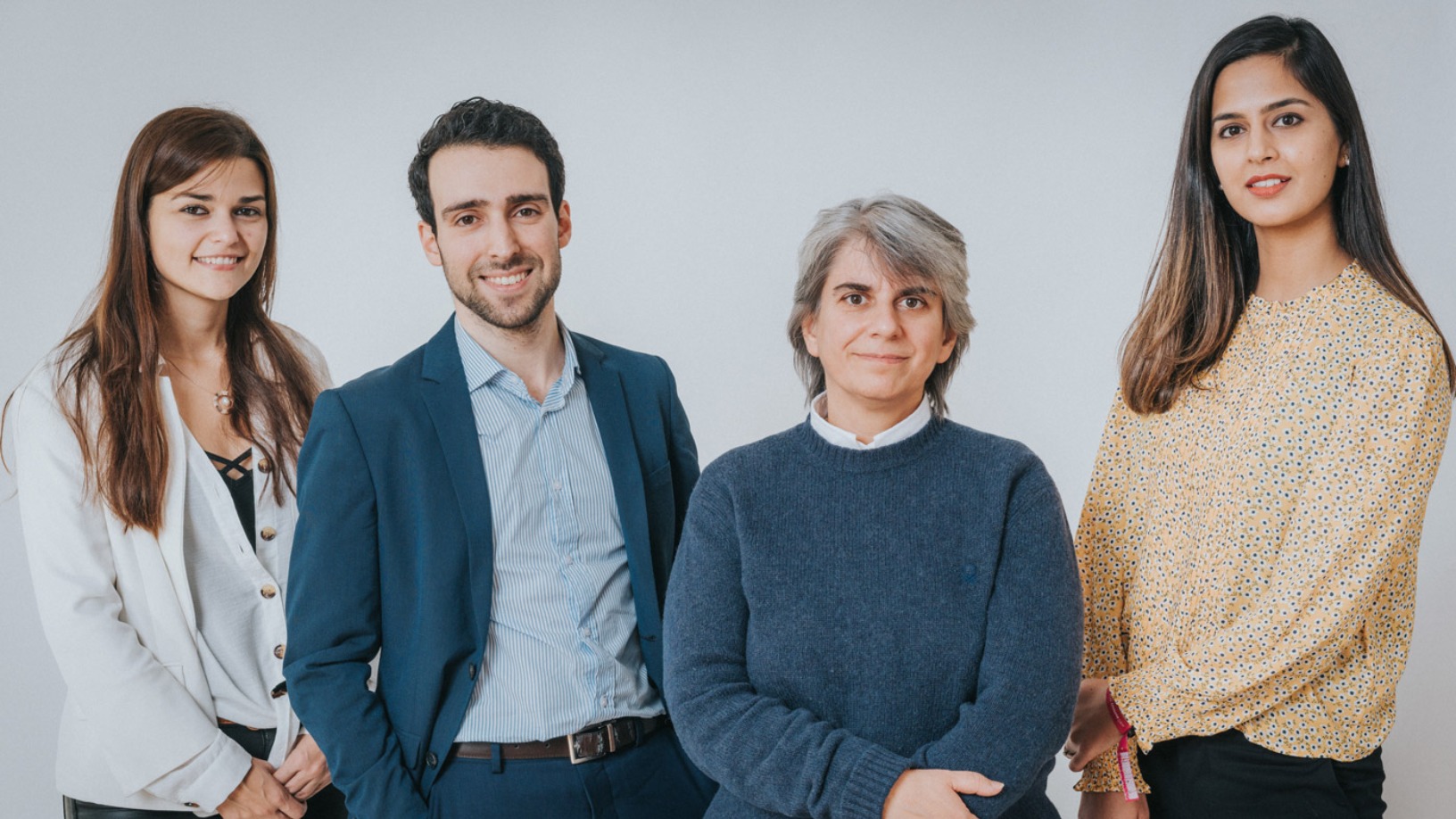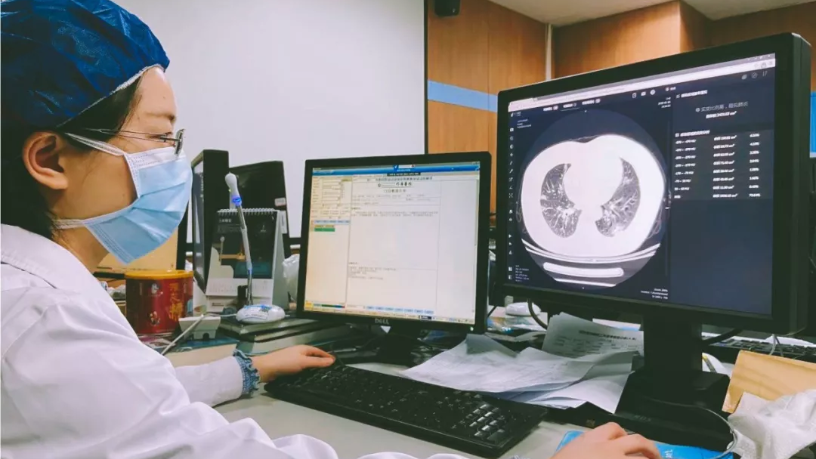Imagine getting your own personalized medical treatment for an illness – say, diabetes or cancer – created using all the biological, medical, behavioral and environmental information known about you. iLoF, a Porto- and Oxford-based precision medicine startup, is working to make that possible, from needing just a single drop of blood from the patient.
The goal: better predictions and preventative measures in early diagnostics, as well as accelerating and optimizing drug and treatment development – through inexpensive and non-invasive patient screening and stratification.
"iLoF was born out of the recognition that the enormous advances in medicine in recent centuries have been based on the idea that the same treatment is effective for the entire population – when, unfortunately, it is not always so,” said Luís Valente, iLoF CEO and co-founder.
The startup’s solution comprises three parts. A patented photonics device deploys a laser beam launched by microlensed optical fiber to identify biological nanostructures in the blood, while proprietary AI algorithms process those light signals to create a unique “optical fingerprint” of a patient’s phenotype and stage of disease.
That fingerprint, along with many others, each containing vital disease biomarkers, and patients’ biological profiles, all go into iLoF’s cloud-based library – serving as a database that scientists, doctors and pharmaceuticals can use to correlate with various heterogeneous diseases to develop personalized medicine.
Porto, Oxford scientists
Named to the Forbes 30 under 30 list for Science and Healthcare last year, Valente co-founded iLoF in 2019 with a top-notch team of scientists. The iLoF project was initially part of the physics PhD research of Joana Paiva, iLoF co-founder and CTO, with the scientific backing of Inesc Tec, or the Institute of Systems and Computers Engineering, Technology and Science, where Valente was working.
Shortly after, Mehak Mumtaz, a biochemistry lecturer at the University of Oxford with a PhD in pathology, joined the co-founding team as COO. iLoF is based in both Porto and Oxford, where it is accelerated by the Oxford Foundry, the university’s tech startup- and venture-building center. In Porto, its R&D center, iLoF gets technical support from the Institute of Research and Innovation of the University of Porto (i3S), where the fourth co-founder and CSO, Paula Sampaio, is senior researcher.
The startup last raised $1m funding from Microsoft’s venture fund M12, global VC Mayfield and Melinda Gates’s Pivotal Ventures in July 2020. The team was one of the four female-led startups that won the investment, resources and mentoring through the Female Founders Program. In 2019, iLof also raised €2m from EIT Health, Europe’s largest life science network backed by the EU.
Alzheimer’s, cancer, now Covid-19
About 90% of patients drop out of clinical trials because of current invasive and inconvenient screening methods – a problem iLoF seeks to solve with its blood-based screening method. iLoF says its technology also cuts the cost of screening by 40% and screening time by 70%.
iLoF’s solution is based on detecting pathobiological signatures of a disease, including key proteins and exosomes, data that it stores in its cloud-based library and used for patient stratification and outcome forecasting.
Scientific research increasingly link exosomes to the pathogenesis of several neurodegenerative diseases, such as prion disease, Alzheimer’s disease and Parkinson’s disease, “in which the exosomes lack the capacity for cellular self-repair and spread their enclosed pathological agents among neurons.”
Indeed iLoF initially focused on Alzheimer's disease detection and patient stratification, before its solution also proved effective in other medical applications, such as cancer, stroke and infectious diseases like the Covid-19. In fact, the startup has assisted its clinical partners in forecasting which Covid-19 patients could become seriously ill after they get infected.
That in turn has helped give the startup the needed validation for its technology in diverse clinical applications, demonstrating how quickly its solution could be adapted to new clinical conditions.
“One of the things we do is exactly in the area of Alzheimer's, but not only," Valente told Portuguese media. “In the area of cancer, initially, we started to stratify for different types of gastric cancer, stomach cancer and the pancreas […] this differentiation of cancer cells allows the doctor to define what is the most appropriate treatment.”
Co-founders Paiva and Sampaio and other scientists published a research paper on iLoF’s effectiveness in detecting and differentiating the more aggressive gastric cancer cells from the moderate ones in February 2020. “iLoF is able to discriminate two human cancer cell models sharing the same genetic background but displaying a different surface glycosylation profile with an accuracy above 90%,” they wrote, noting “[t]his may constitute a major breakthrough in future detection methodologies of cancer and other diseases based on single cell fast screening.”
Targets healthcare market
Global equity funding for digital health companies rose to an all-time high in 2020 to $26.5bn, up 45% from 2019, according to CB Insights. SOPHiA and Tempus, both precision medicine startups that, like iLoF, use AI and ML technologies to analyze and build a library of genomic data for personalized treatments in oncology and other diseases, raised $110m and $200m in Series F and G funding, respectively, in the fourth quarter of 2020.
Currently iLof has 10 full-time staff, and says it has established collaboration with hospitals and pharmaceutical groups worldwide, looking to accelerate its commercialization.
“We have been generating revenue with biotechs by accelerating their operations,” Valente said, pitching at the Alibaba Hong Kong Entrepreneurs Fund’s Jumpstarter competition in January 2021. “With pharma[ceutical]s, we’re talking about larger scope fields. It takes more time to get there but it is also going to bring much more revenue to the company.
“We’ll eventually want to jump into the healthcare market, with a company in diagnostics, once one of the treatments we’re co-developing is approved.”
iLoF’s work “is already beginning to be recognized,” a validation of the impact iLoF’s solution is having on patients, Valente said. The team hopes go “much further,” reaching "thousands of patients in the coming years.”











